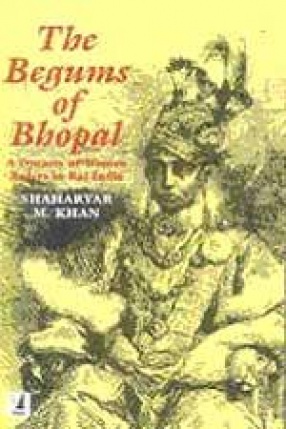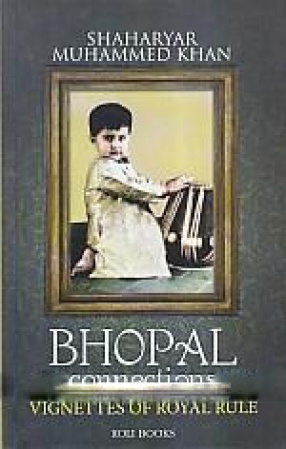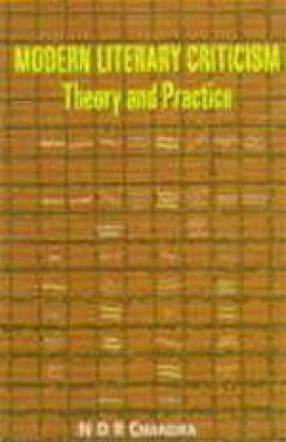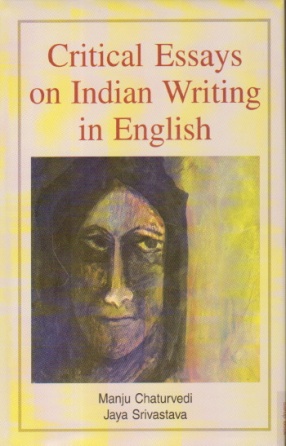The Begums of Bhopal is the unique story of a succession of powerful women rulers in a male-dominated world, a story woven into the rich tapestry of Indian history. Bhopal was carved out of the deadly chaos that followed the collapse of the Moghul Empire by Dost Mohammad Khan, whose dash, bravery, ruthlessness and desire for good government are all reflected-like the romance and good fortune of his story-in the rule of the Begums who followed.Bhopal became a major princely state in British India and, early in its turbulent history, the role of its women rulers was vital. Mamola Bai (1744-95, a Hindu Rajput, married the Muslim Dost’s son, Yar Mohammad Khan. Though never recognized as a Begum, for 50 years she ruled from behind the curtain (purdah) on behalf of Yar’s ineffective sons. The accepted rule of the Begums dates from the accession of the formidable Qudsia (1819-37), who seized control on behalf of her 15-month-old daughter Sikandar, warding off competing male claims. She ruled effectively while preparing Sikandar for power and so laid the foundations for Bhopal’s golden age.Sikandar (1844-68) was fearsome in her Amazonian physical power and a typical 19th century modernist and reformer. She presided over administrative, social and educational reform and made Bhopal a haven for scholarship and culture and a centre for building, arts and crafts. Shahjehan (1868-1901) proved a marked contrast to her powerful mother but, although her long reign saw constant opposition from both the British and her Indian subjects to the influence of her unpopular husband, she still left a considerable mark in architecture, music, poetry and the arts.The last Begum, Sultan Jahan (1901-26) stamped her rule with her own powerful image, despite personal tragedy and long legal wrangling over the succession of her son, Hamidullah, whose reign marked the end of Bhopal’s rule by the famous Begums. Sultan Jahan combined Muslim piety with ardent reform and became an international figure as first president of the All India Conference on Education and first chancellor of the Muslim University of Aligarh. She was a tireless worker for women’s emancipation and education, publicly abandoning purdah two years before her death.The Begums of Bhopal offers the first balanced history of the state and, in discussing the Begums policies in dealing with the British, also provides a fascinating account of British imperial relations with the princely states.
The Begums of Bhopal
In stock
Free & Quick Delivery Worldwide
Bibliographic information
Title
The Begums of Bhopal
Author
Edition
1st ed.
Publisher
Viva Books Pvt. Ltd., 2004
ISBN
8176494119
Length
276p.
Subjects








There are no reviews yet.